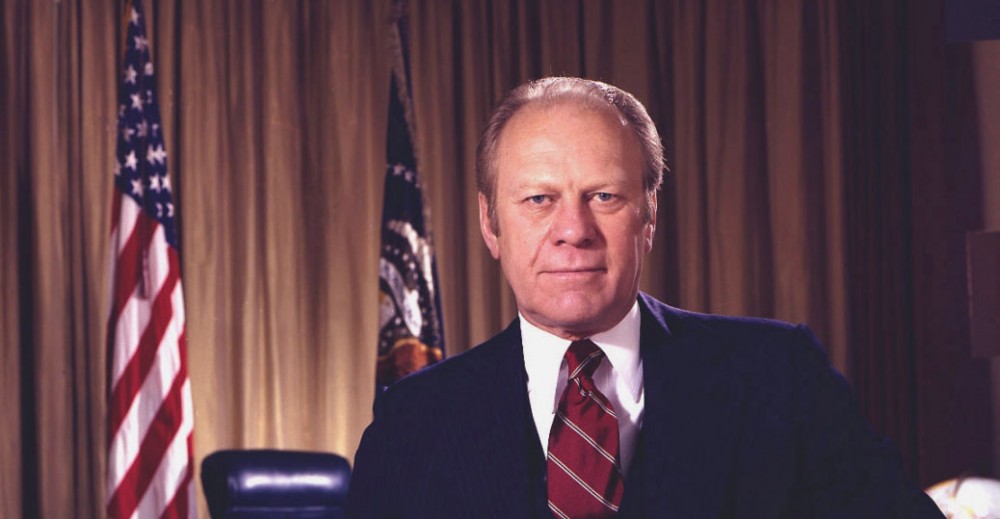Presidential Museum hosts panel on Gerald R. Ford

GVL / Courtesy – History.com
Oct 20, 2014
This year is the 40
th anniversary of when President Gerald R. Ford assumed the presidency of the United States. To commemorate this, the Gerald R. Ford Presidential Foundation is putting on a session of panels to discuss how the Constitution played into Ford’s rise to the presidency, and one of the most quintessential events in the history of American presidents – the pardon of Richard Nixon.
On Oct. 20 at 8:30 a.m. in the auditorium of the Gerald R. Ford Presidential Museum, the first panel will discuss “President Ford and The Rule of Law.”
The Hauenstein Center for Presidential Studies at Grand Valley State University is a sponsor of the event, as well as the Economic Club of Grand Rapids and the National Constitution Center.
The 25
th Amendment outlines the succession to the presidency, procedures for when the vice presidency is vacant and instances when presidential power should be transferred in times of disability. Ford was involved in three situations that required the usage of the amendment.
Ford was a congressman from Michigan’s fifth district in the U.S. House of Representatives for 25 years. Instead of achieving his goal of speaker of the house, he assumed the vice presidency under rare circumstances.
After Vice President Spiro Agnew resigned in 1973 to handle criminal charges of tax evasion, Richard Nixon appointed Ford as his replacement, which Congress would have to approve. Ford then succeeded Nixon in 1974 as the 38
th president after Nixon’s resignation. Once he was in office, Ford appointed Nelson Rockefeller as vice president.
Ford was never voted into office as vice president or president, making his use of the 25
th Amendment singularly unique.
The panel will discuss the constitutionality behind these events and the implications it had on Americans, as this was a time of confusion for most.
“It was a tough period of time, when Ford took office,” said Joseph Calvaruso, executive director of the Gerald R. Ford Presidential Foundation. “There were protests in the streets, and people were wondering what was going on. I was a senior in high school at the time, and I can remember the turmoil and listening to the news of what was happening.”
The first panel will discuss this topic of Ford and the Constitution. Jeff Rosen, president and CEO of the National Constitution Center, will be the moderator of the panel. Panelists include Mark Wolfe, senior U.S. district judge, and Mike Gerhardt, director of the Center on Law and Government of the University of North Carolina – Chapel Hill.
“It was a unique moment in American history,” reads a placard in the Gerald R. Ford Presidential Museum. “The inauguration of the country’s first unelected president, in an atmosphere combining elements of personal tragedy, public scandal and popular uncertainty.”
The second panel, “President Ford and the Pardon of Richard Nixon,” is at 10 a.m. in the museum’s auditorium.
Ken Gormley, dean and professor at Duquesne University School of Law will be the moderator. Panelists include John Logie, former counsel to Ford, and Jill Wine-Banks, former assistant Watergate special prosecutor.
Steve Ford, the president’s son and trustee of the Gerald R. Ford Presidential Foundation, will be present to give his remarks on what it was like to live through his father’s steps into the White House.
“We’re paying tribute to President Ford in his 40
th anniversary of taking office by looking at the constitutionality of the pardon and how he got into office,” Calvaruso said.
The event is free and open to the public. To register for the morning panels call (616)-254-0396 or sign up online at
www.geraldrfordfoundation.org.





















